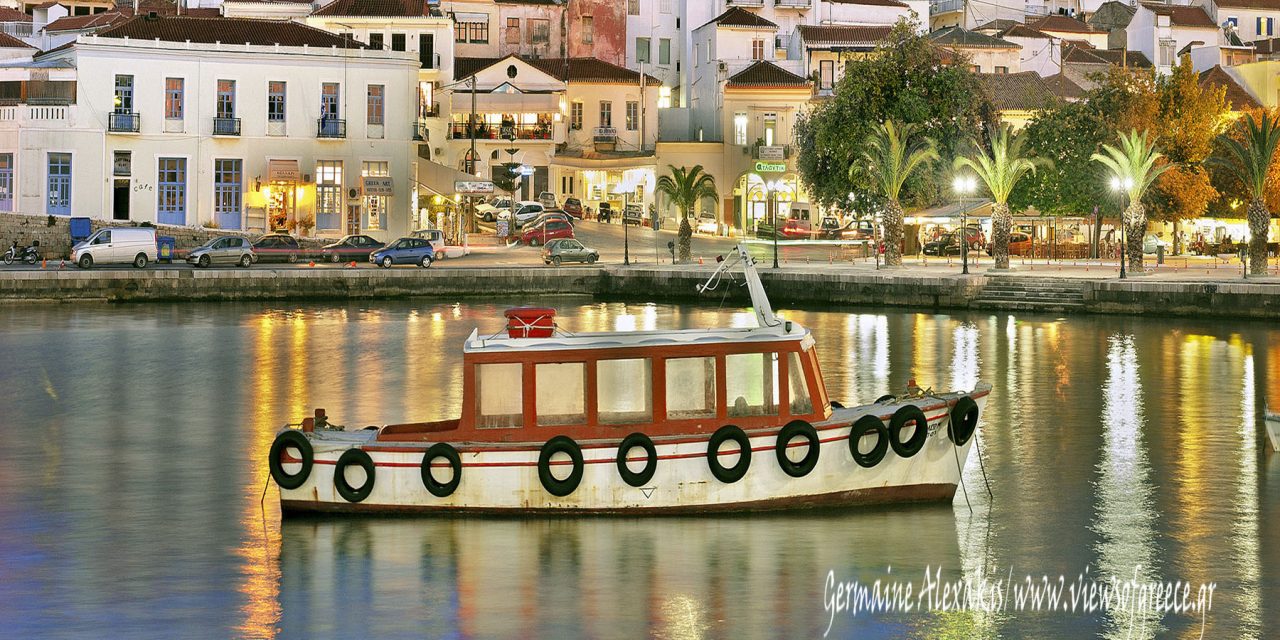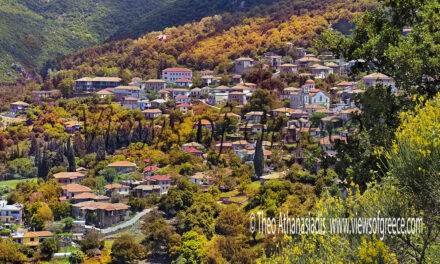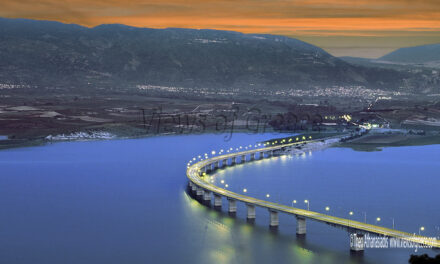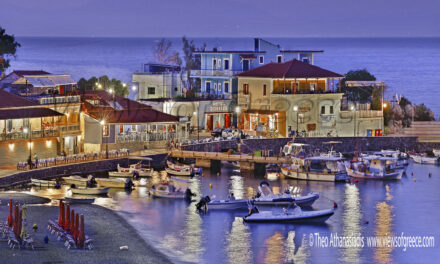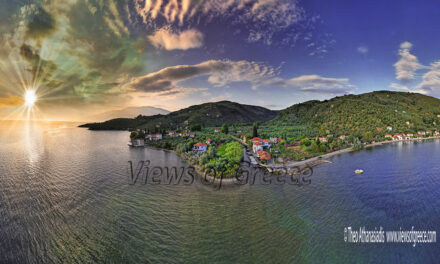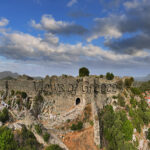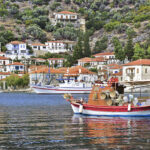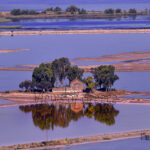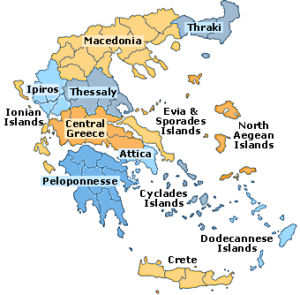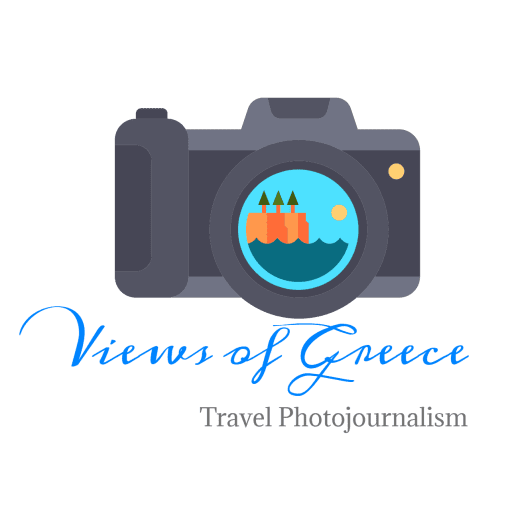Small marine cities and villages, castles and fortresses, wetlands that throb with life, verdant hills that slip softly down to the wave… The region of Pylos, with its ageless Mediterranean landscape, combines harmoniously the outspread beaches of its coastline with the lee landscapes of Gialova’s lagoon.
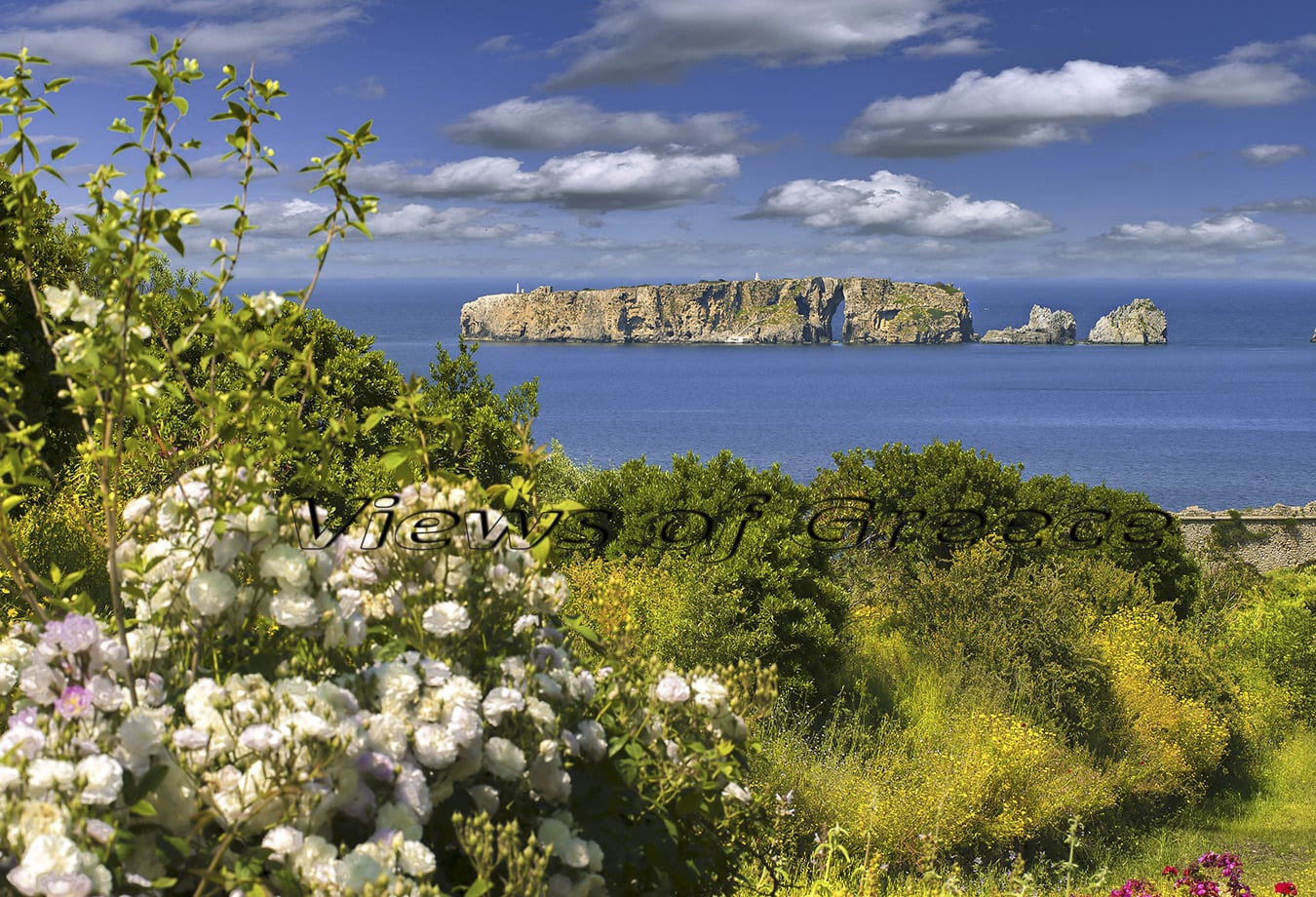
photo: Germaine Alexakis/ Views Of Greece
Map and compass: We are in south-western Peloponnese, in Messinia prefecture. At this part of the shore the wooded bas-relief of the island fades gradually away in the Ionian sea, creating a pleasant seascape painted with constant alternations and rich coastal embossements. Dense olive groves and fertile fields meet with lagoons and golden sandy beaches that look at the open sea straight in the eye. In the southern end of Navarino’s gulf the tiny city of Pylos is found, our final destination.
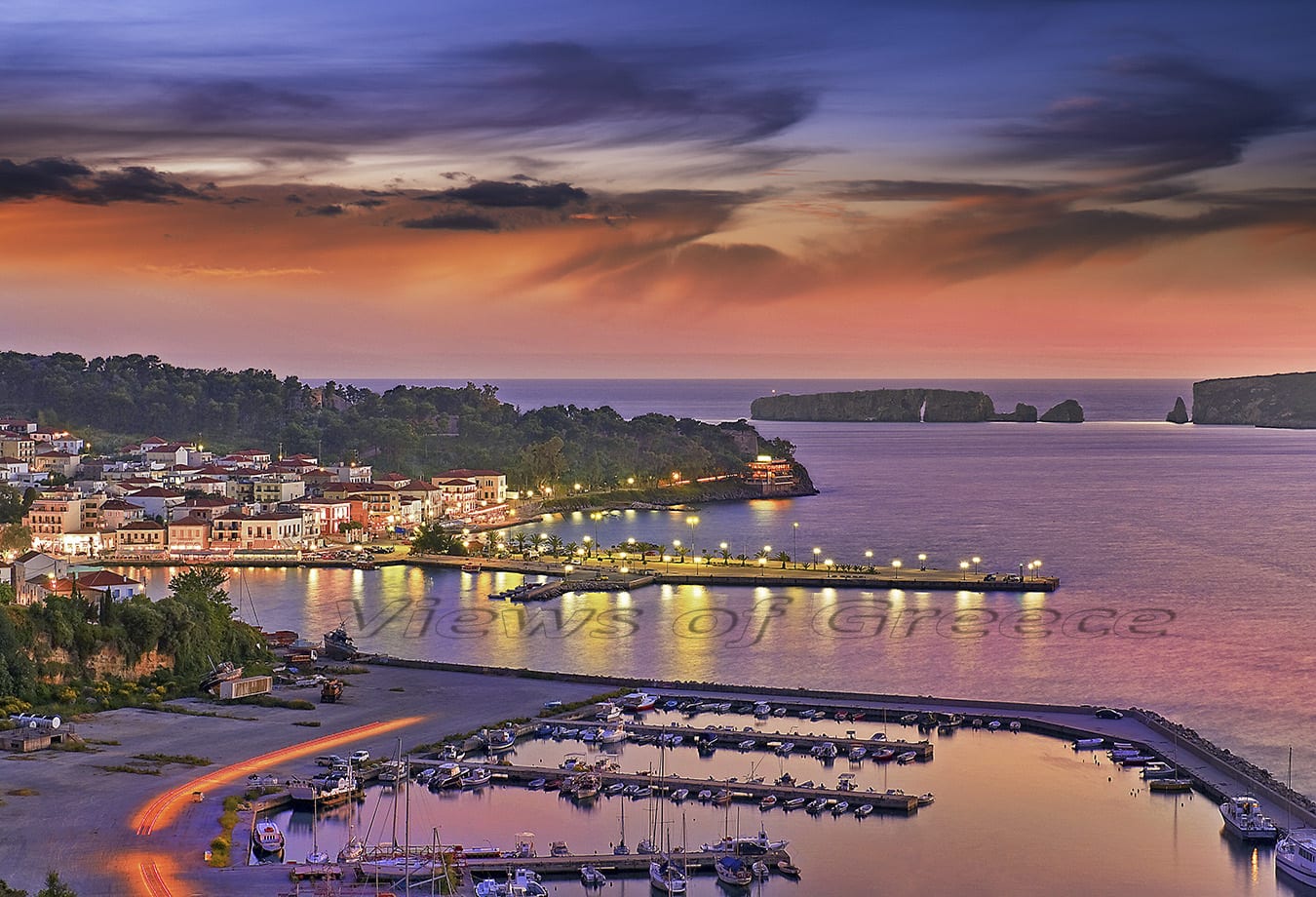
photo: Germaine Alexakis/ Views Of Greece
First impression
Pylos will win your over at first sight. From this moment and on you will just leave yourself to the spirit of the Messinian nature and enjoy unique excursions up to the mountains or down to the sea. You will discover wetlands teeming with life protected by international conventions, castles and fortresses risen from the depths of Middle Ages, places where history has been written regularly since Homer’s time up to nowadays… Pylos can also be your “terminal” for nearby daily excursions to Methoni, Koroni and the villages higher up to the surrounding mountainous zone.
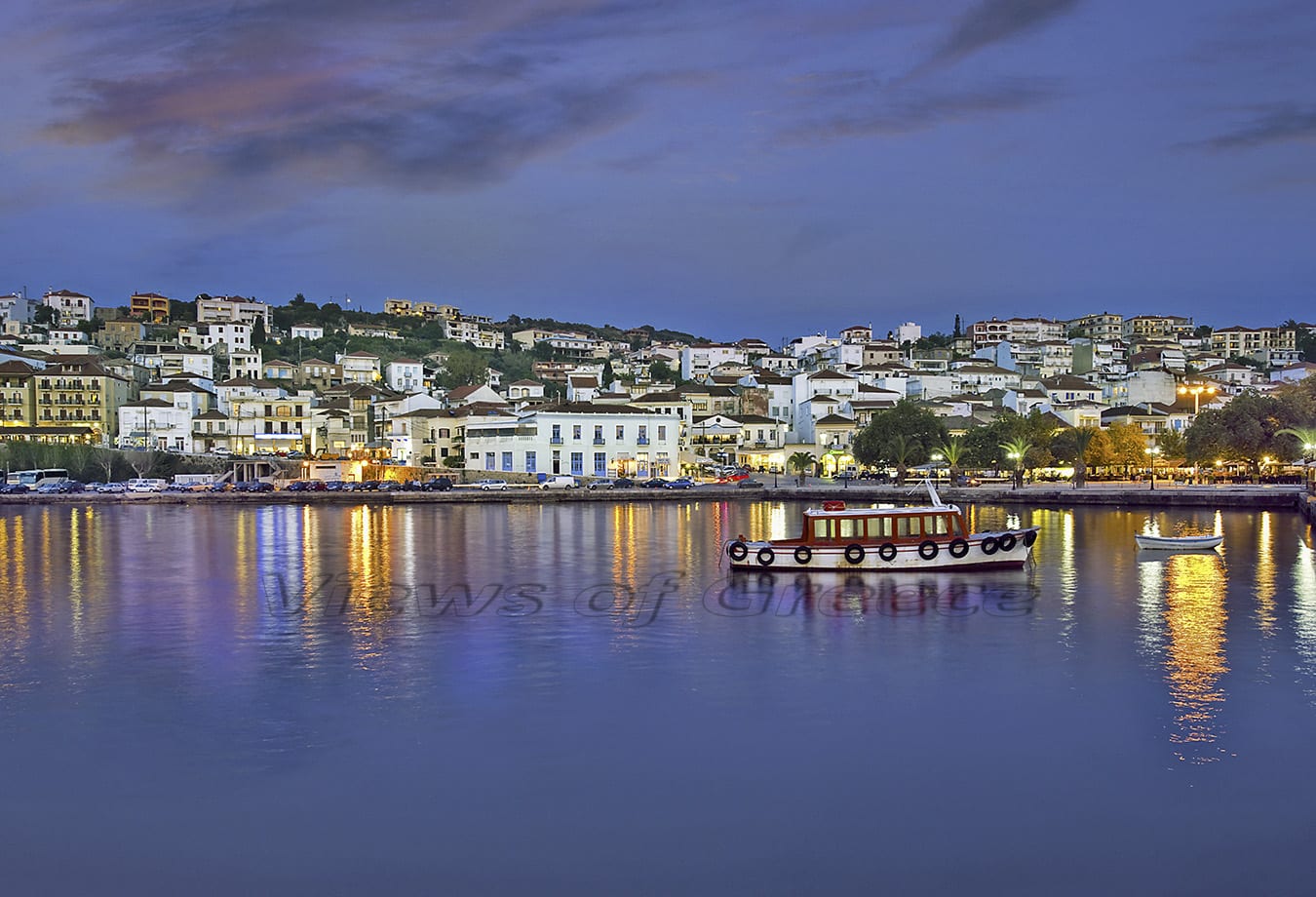
photo: Germaine Alexakis/ Views Of Greece
Tales ane history
At the idyllic Navarino’s gulf, a historical martial event was taken place on the 20th of October 1827, that cost the lives of 6000 people, but it also determined a new course for Greece as independent state. After 6 years of hard fights the Greek revolutionaries were still having difficult time under the yoke of the Turks as the Egyptian Pasha Hibraem- Turks’ ally-, invaded Peloponnese and repressed every armed activity.
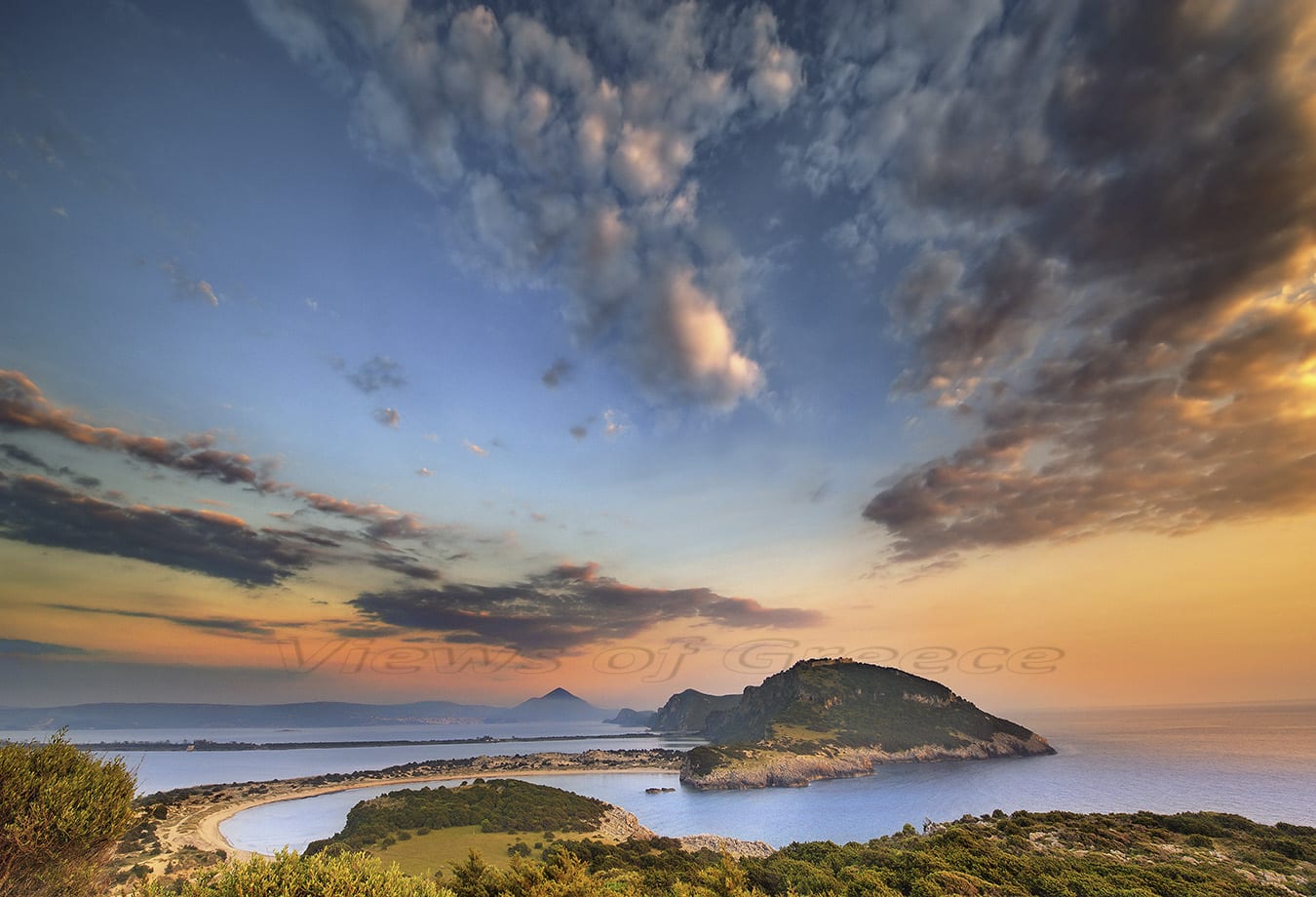
photo: Germaine Alexakis/ Views Of Greece
It was then that the Great Powers of the time (France, Britain, Russia) decided to intervene and in a short but violent naval battle they destroyed the Turkish-Egyptian fleet. After the liberation of the country (1829), the current settlement of Pylos was built by French mechanics and took -in honor of-, the name of the ancient city of Pylos. That was the city of the legendary and wise king Nestor who fought against the Trojans side by side with the Field Marchal of Achaeans, King Agamemnon.
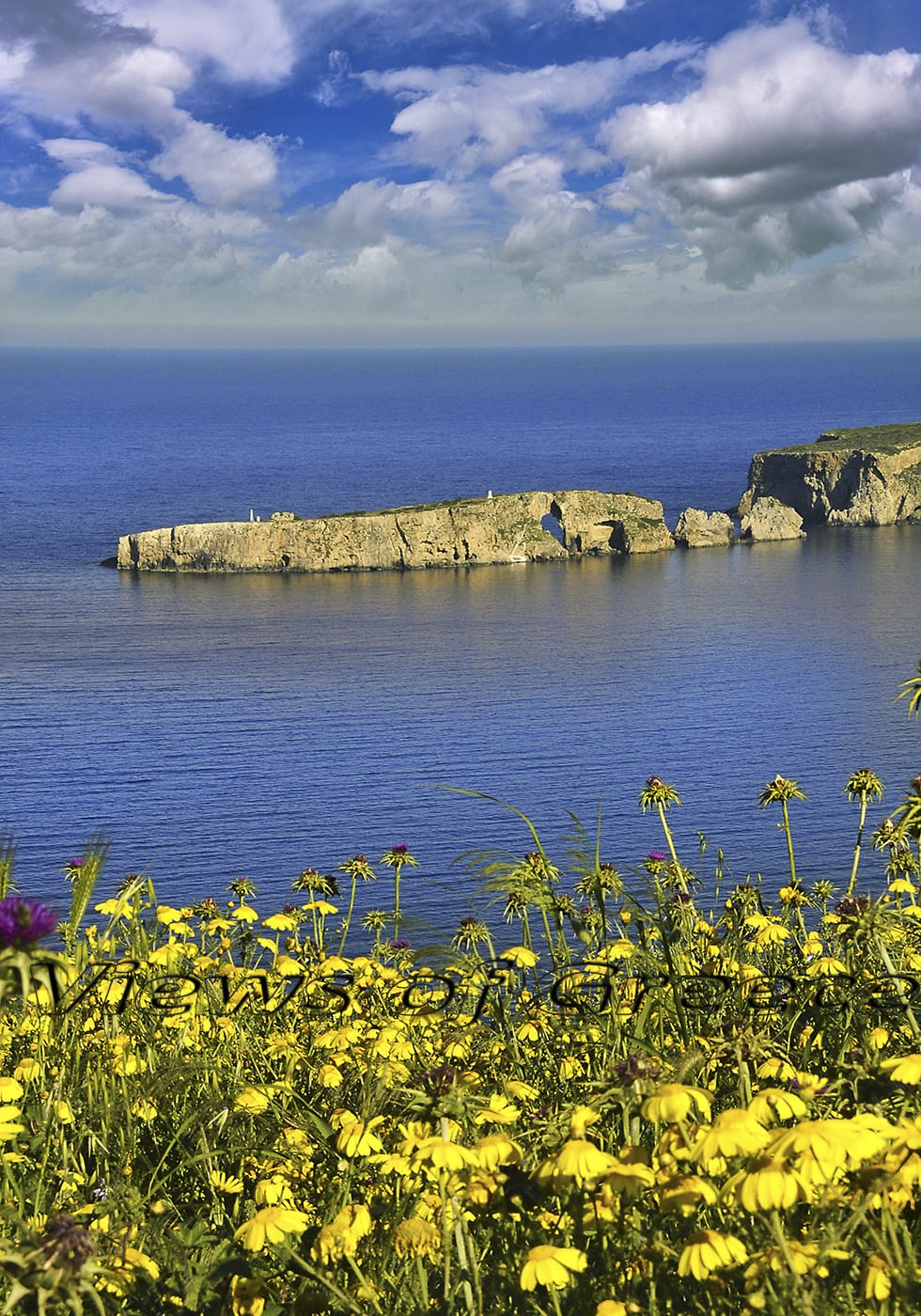
photo: Germaine Alexakis/ Views Of Greece
What to see in Pylos
Built around the cove of the smooth gulf of Navarino, the neighbourhoods of town Pylos climb up the surrounding hills, shaping a built-up «horseshoe» that shines with its architectural harmony and allures you. Round the harbour reflexions of the old two-storey mansions pose on still waters. The central square of Pylos is that of the Three Admirals, next to the harbour. It was thus named to commemorate the admirals of the allied forces Cordington, Derigny and Heyden, who crashed the Turkish-Egyptian armadas in 1827.
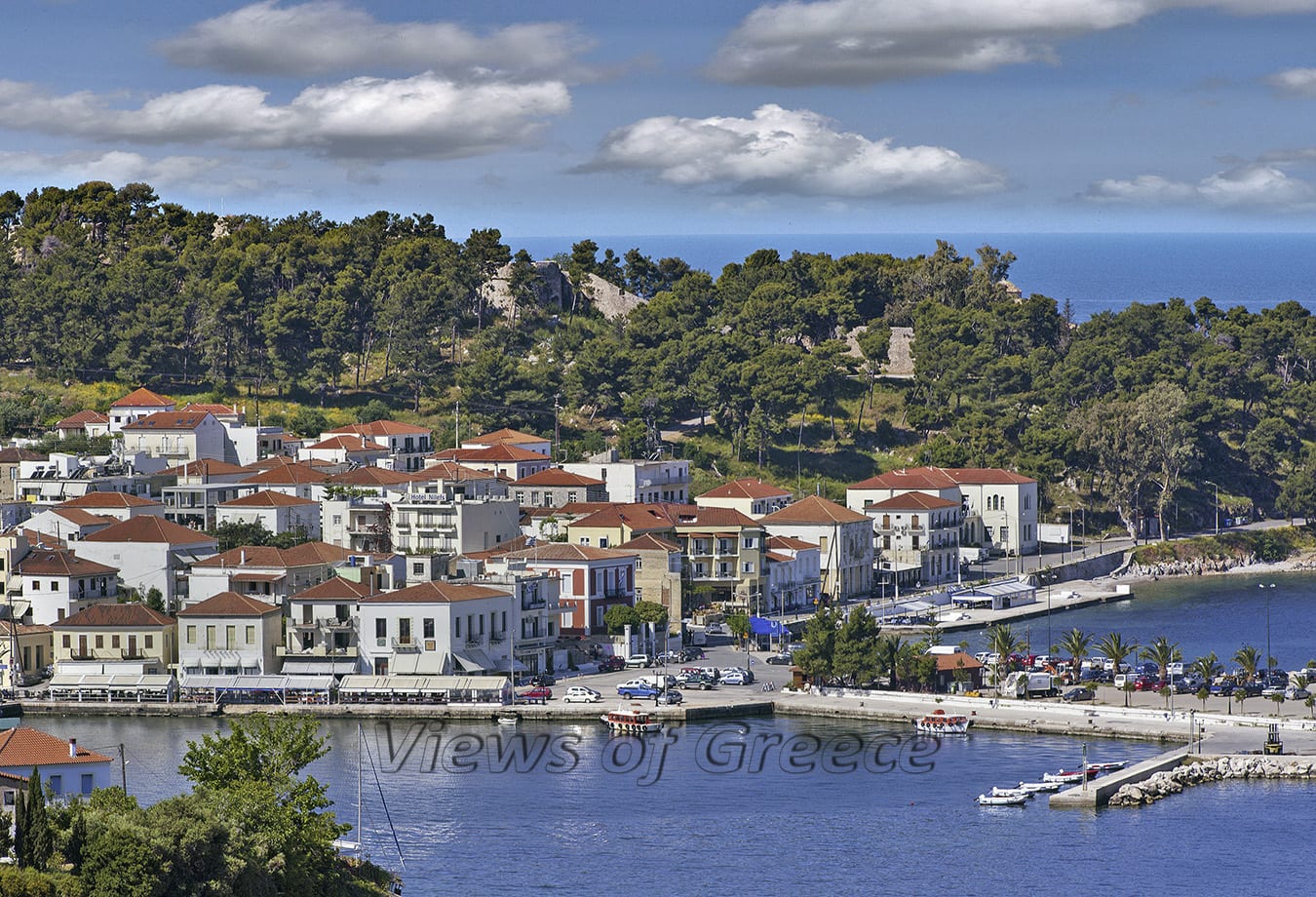
photo: Germaine Alexakis/ Views Of Greece
A short walk will bring you to the Archaeological Museum of Pylos, where findings from the Mycenean, the Archaic, the Hellenistic period, but also from the Roman Ages are exhibited.
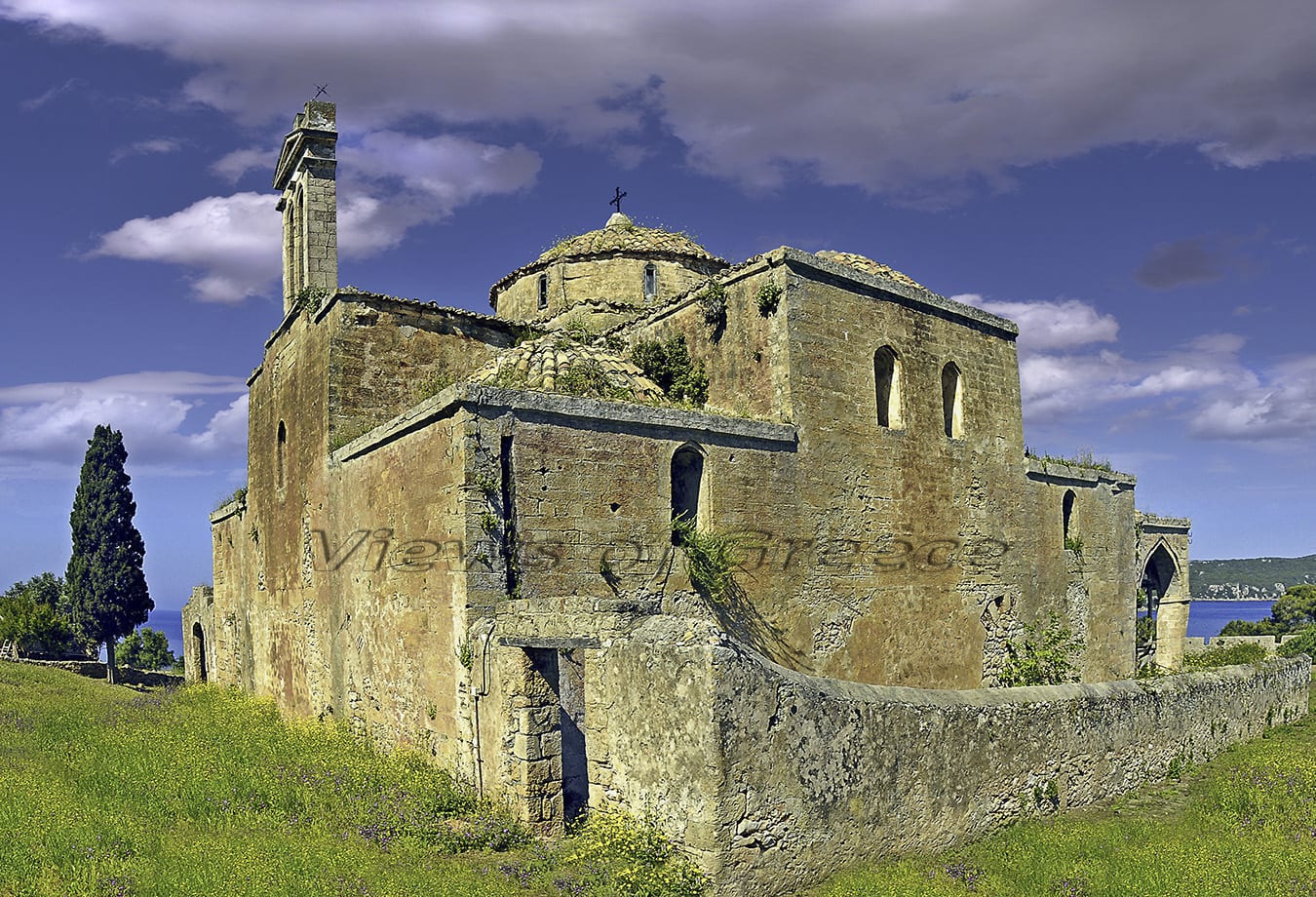
photo: Germaine Alexakis/ Views Of Greece
Then you will visit the magnificent castle “Niokastro” that is found at the western outskirts of the town. This firm fortress was built in 1573 by the Turks, while at the end of the 17th century it came to the hands of the Venetians and then it passed again to the Turks and later to the Russians. The Institute of Submarine Archaeological Studies is also housed inside the walls, while in a properly arranged room an exhibition of findings from the naval battle of Navarino has opened to the public.
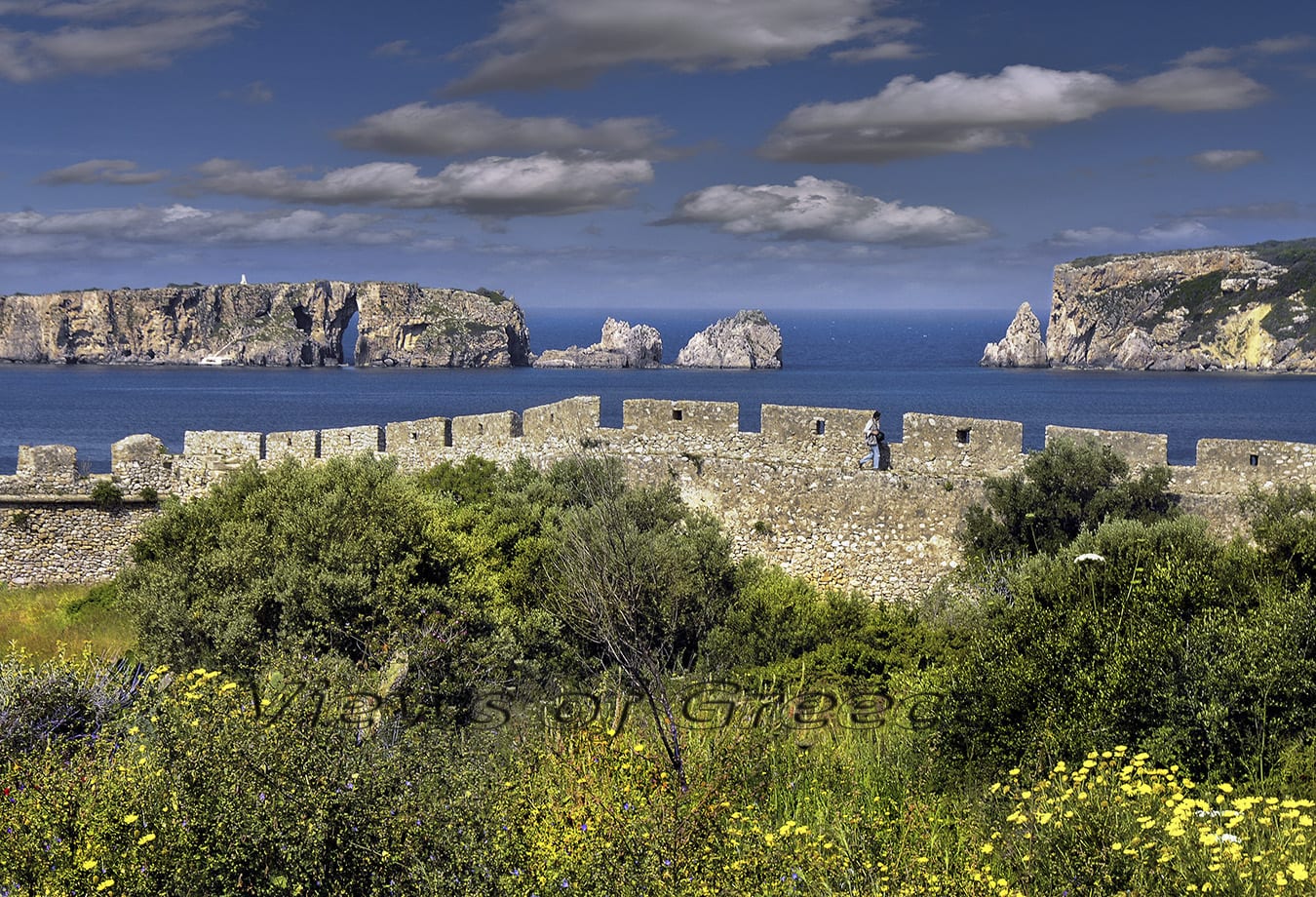
photo: Germaine Alexakis/ Views Of Greece
The nearby beaches
From Petrohori (12 km north from Pylos) you will approach the spacious beach of Romanos that is much frequented, especially nearby the hotels. Further down to the south you will find the tropical beach of “Voidokilia” with its characteristic rounded shape and its transparent azure waters looking to the Ionian sea from a narrow opening. The beach is easily approached from Petrohori (1 km tarmacked road and 500 metres earth-road). Then you will leave your vehicle and walk for just 100m down to the coast. It is not organised, nor it provides shade and you are supposed to bring with you at least your drinking water.
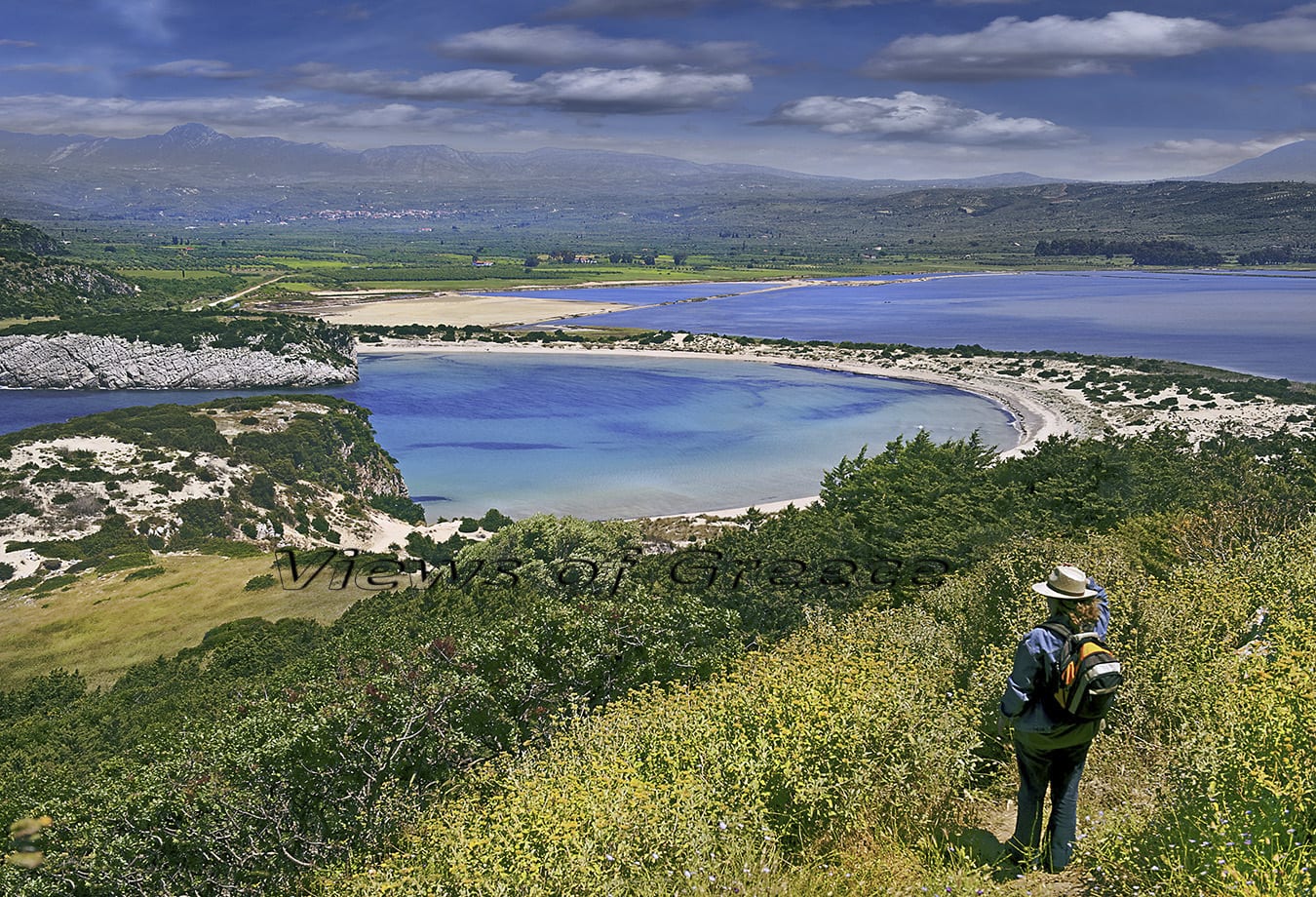
Photo: Theo Athanasiadis / Views Of Greece
Outfront the Gialova settlement stretches the “Gialova” beach, popular mainly for its shallow waters. It is hardly 3,5 km off Pylos and is considered most suitable for children. Along the beach runs the coastal road (only used by pedestrians during summer months), while taverns and coffee houses spread their tables almost in the waves. Due to local airstreams the beach is ideal for wind-surfing or kite-surfing.
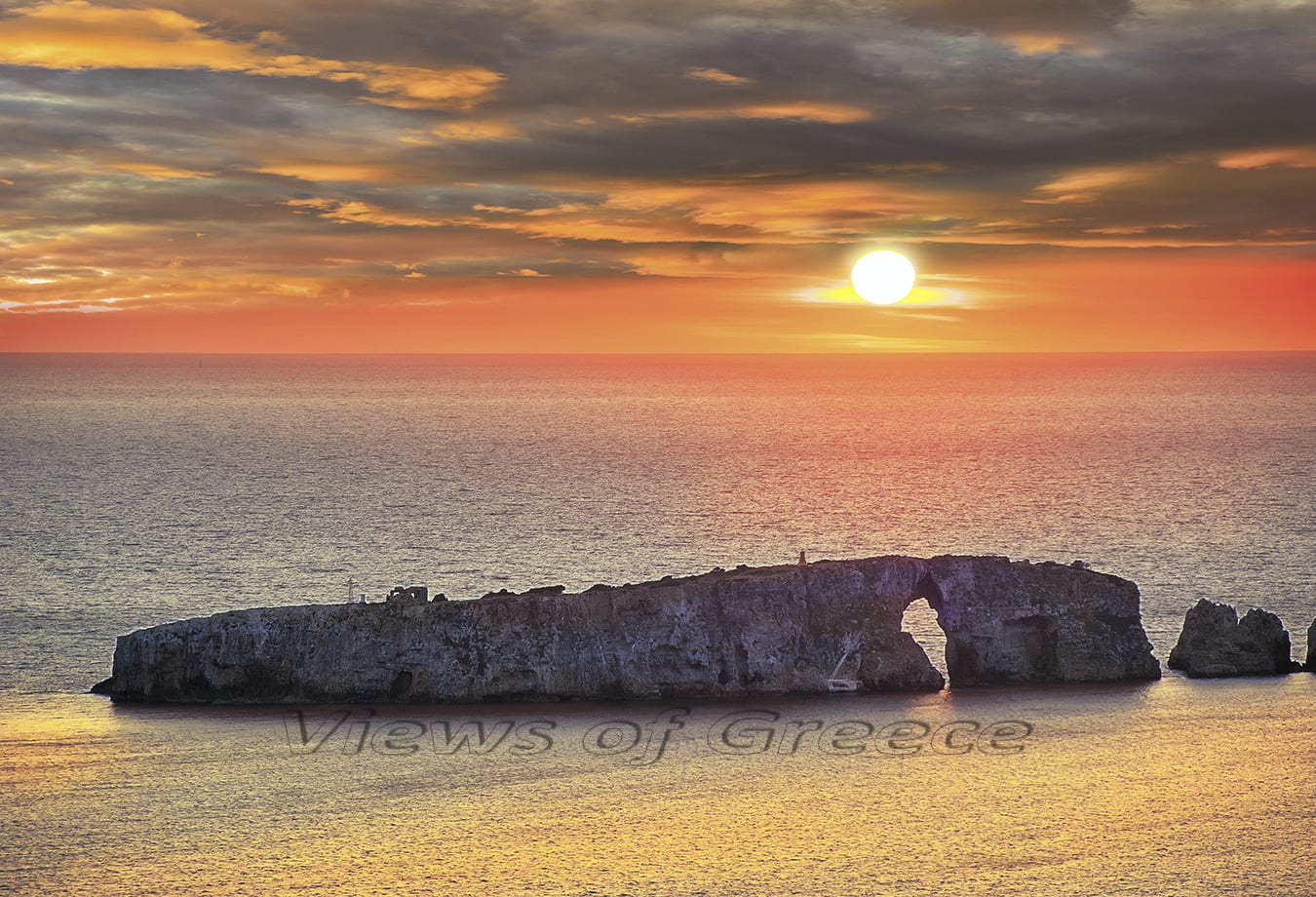
photo: Germaine Alexakis/ Views Of Greece
What to do
Ascent to the “Paliokastro”
Just before the day gets warm you will visit “Voidokilia” and then you will start ascenting the sand hills for almost 30 minutes up to the cave of King Nestor from where yoy will enjoy the panoramic view down to the lagoon of Gialova and to the “Voidokilia” beach. From this point an intensive ascent (at certain points you also need to climb) will bring you to the top of the hill, where the castle “Paliokastro” (13th century) dominates in a position that also offers an excellent perimetric view. For returning more easily back to the “Golden Coast” beach (see “Nearby Beaches”) you can use the back side of the hill with clearly“softer” slopes.
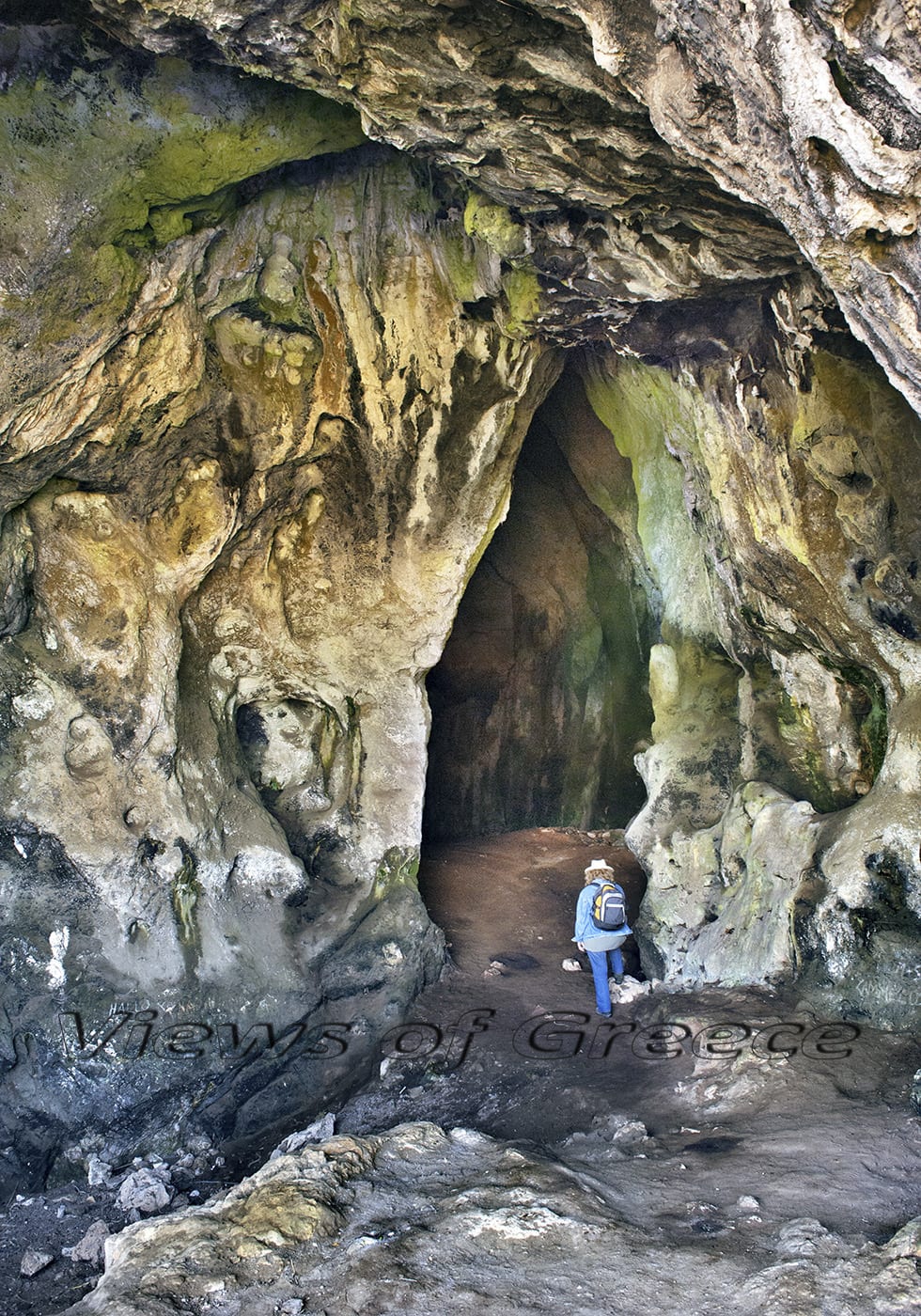
Photo: Theo Athanasiadis / Views Of Greece
Cycling around Gialova’s wetland
The lagoon of Gialova constitutes the most southern wetland of international significance in Eastern Europe, since it is an important stopover for thousands of birds that migrate from Africa and back. It also provides shelter to 265 different species of the winged fauna. Moreover a small colony of roughly 400 individuals of the African Chameleon (chameleo africanus), unique in Europe, still survives here. The best way to get familiar with this sensitive ecosystem is by bicycle, that you can hire at Gialova’s village. You will follow the coastal road to the north. In 2 km you will see the small road allowed only for pedestrians and bicycles and you will cycle in parallel to the “Gialova- Divari” lagoon that is considered as a protected region by “Natura 2000” ecological network of the EU.
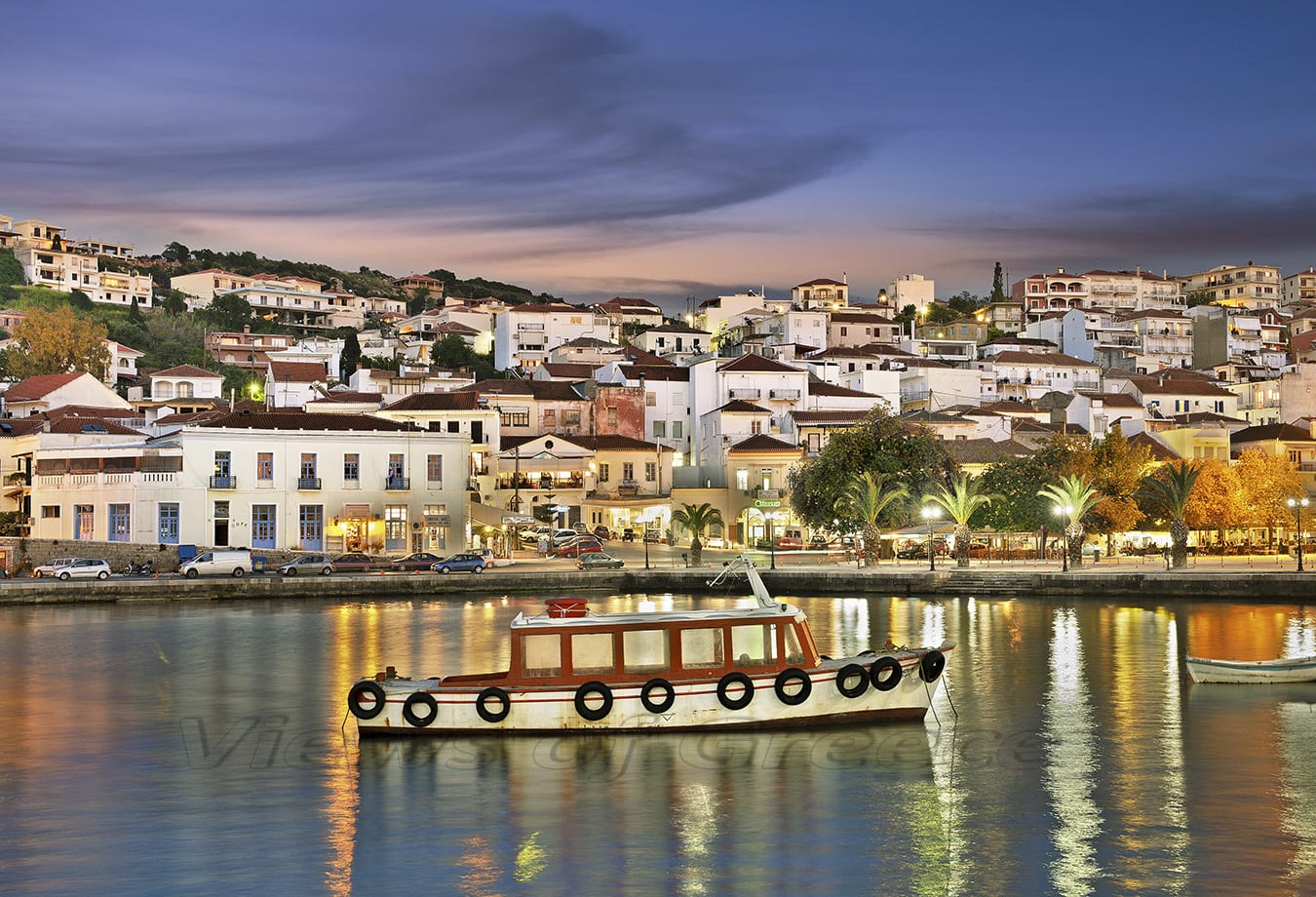
photo: Germaine Alexakis/ Views Of Greece
With “caique” at “Sfaktiria” island
At the old harbour of Pylos you will find small traditional excursion boats –“caiques”- that leave daily for the nearby deserted islands. First they reach the small island Pylos(Tripito) with its pitted rock and the monument in memory of the French who died at the naval battle of Navarino (1827). Then they set course for Sfaktiria passing by the monument of the Italian philhellene Santorre Di Santa Rosa. The boats are made fast for a while at the pier from where you can walk up to the wooden Russian church and the monument. Then you will “sail” for “Helonissi” (turtle island) to see the monument of the Englishmen and finally return to Pylos. Information Tel. + 30.27230-23155.
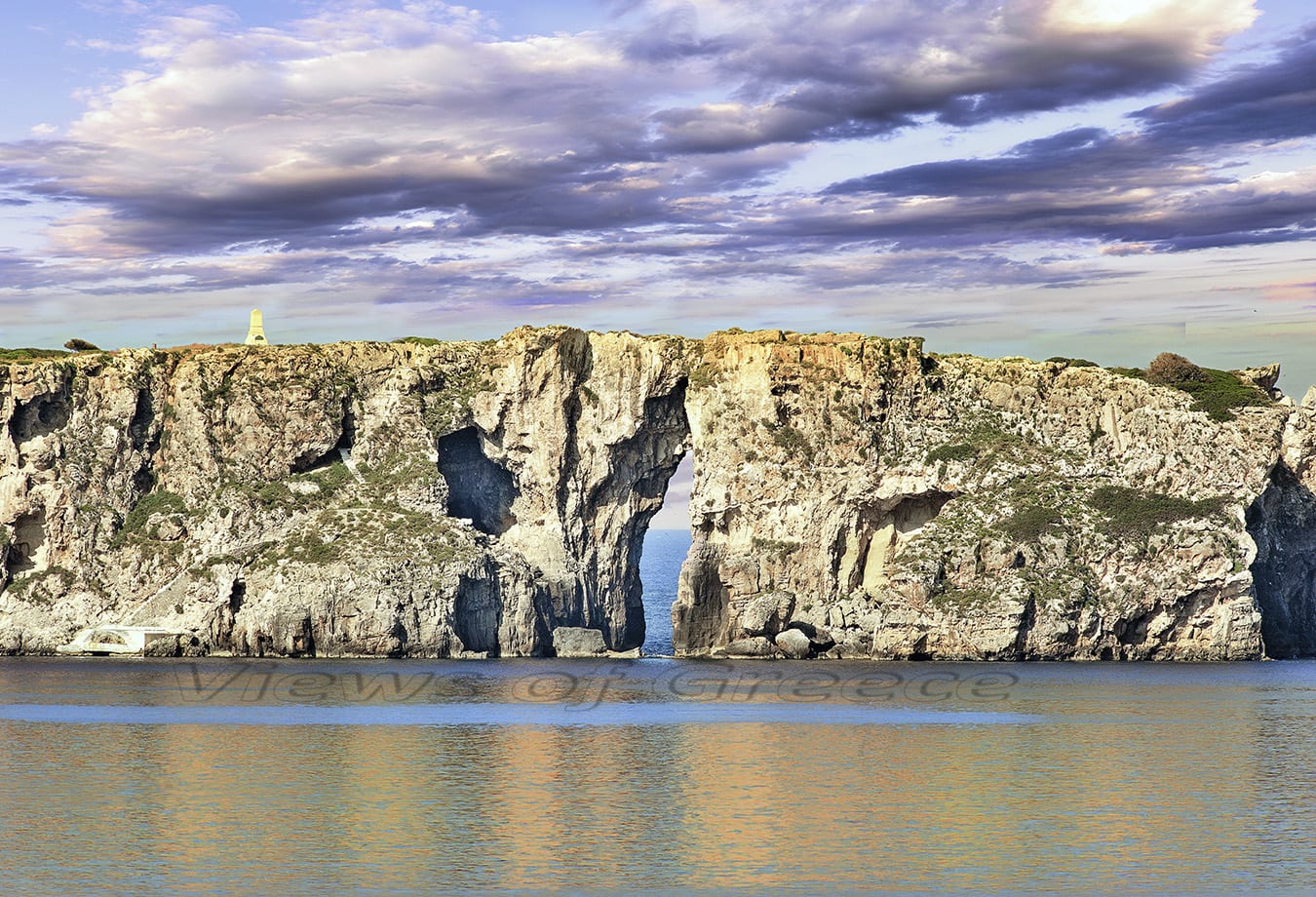
photo: Germaine Alexakis/ Views Of Greece
POPULAR EXCURSIONS
Visiting Methoni, the “eyes” of the Venetians
Koroni and Methoni were two of the most powerful ramparts of the Venetian domination on the marine “roads” that led from the West to the East. Both are found in Messinia prefecture. The castle of Methoni is just 12 kilometres south of Pylos and is easily accessible.
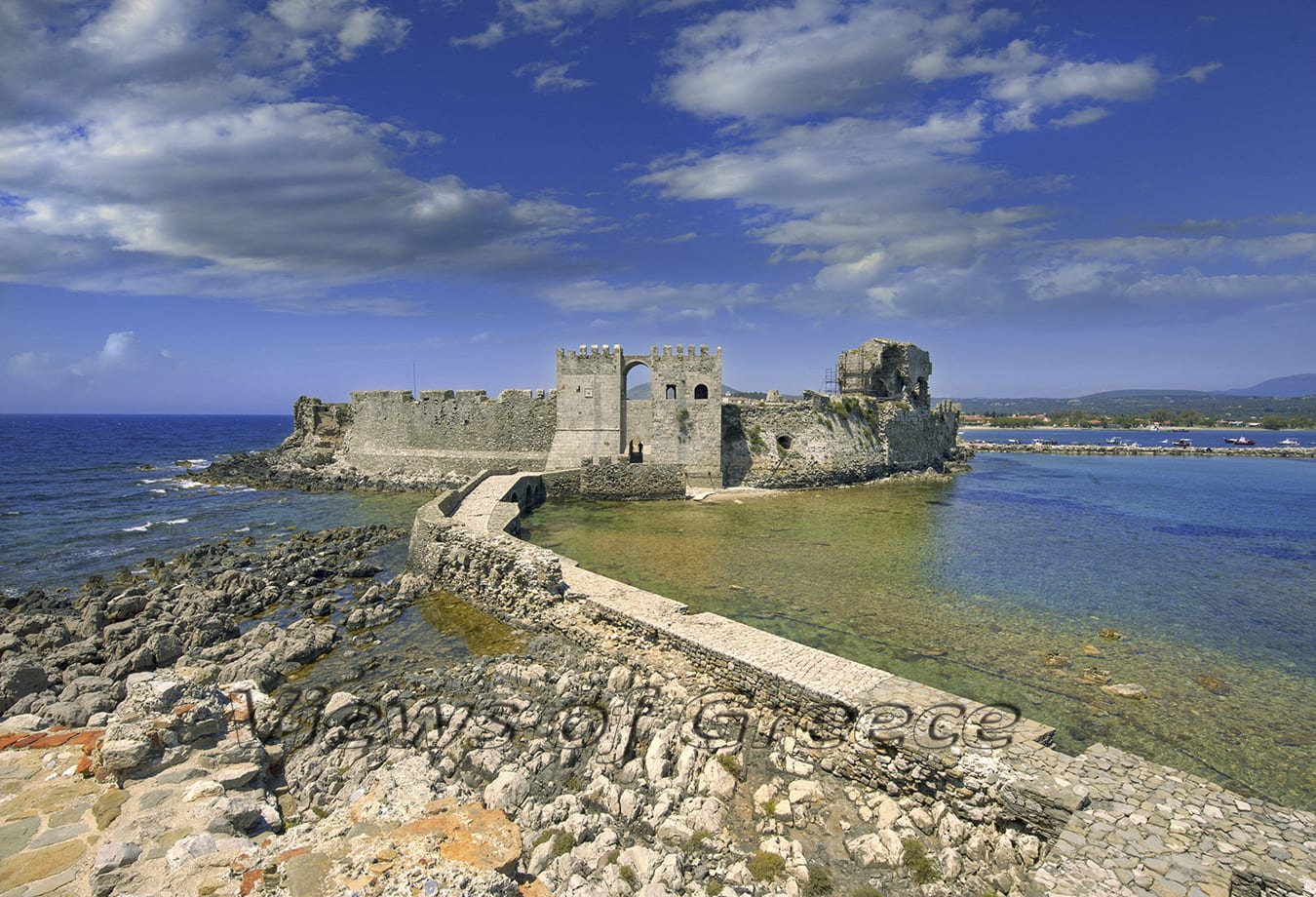
photo: Germaine Alexakis/ Views Of Greece
As time passed by, the small village of Methoni with its beautiful beaches has developed in a popular tourist resort. However, its castle remained away from the built-up activity to be thrashed by the blows of the sea. The road reaches up to its entry (daily open: 8 a.m.- 7:30 p.m.). After your visit to the castle you can swim in any of the neighbouring beaches or eat in the coastal traditional small taverns that serve sea-food titbits.
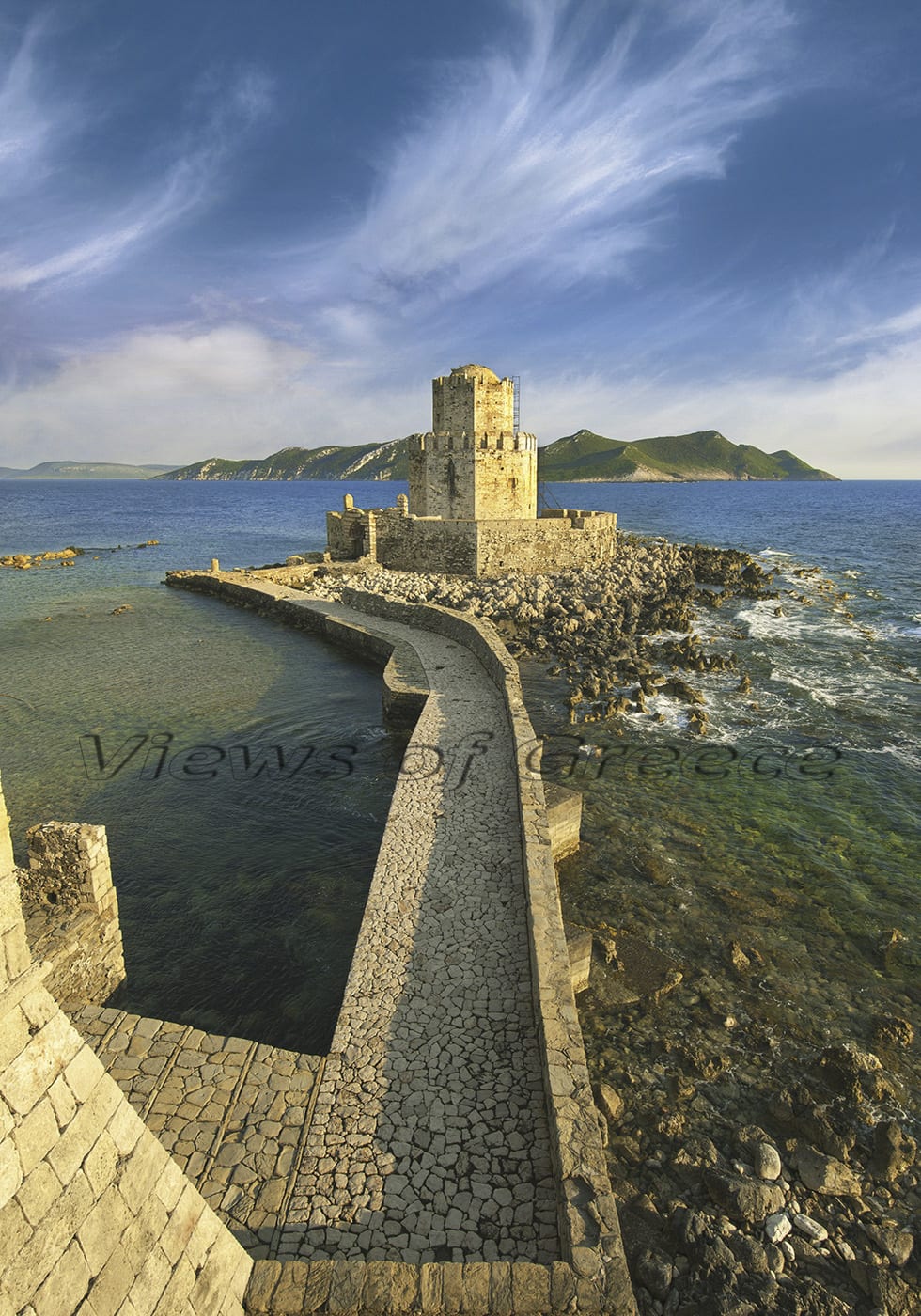
photo: Germaine Alexakis/ Views Of Greece
The waterfalls of Polylimnio
From Pylos you can head east to the villages Handrinou, Soulinari, Mesotopos and then you will turn towards Haravgi (20 km) following the signs. Up to here the road is asfalted with many turns.
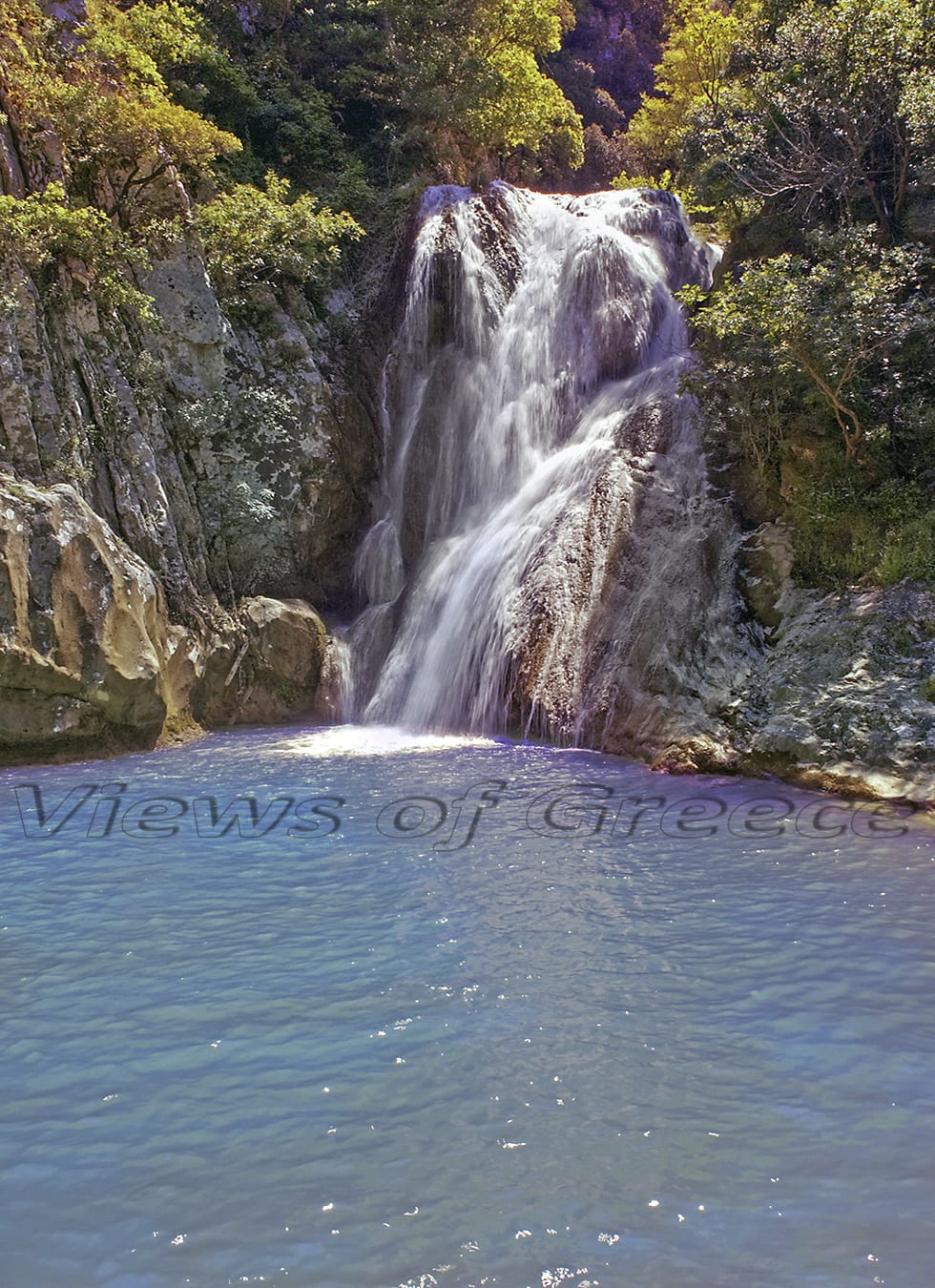
photo: Germaine Alexakis/ Views Of Greece
From the village of Haravgi you will continue for 1.2 km following the signs to the Waterfalls of Polylimnio. Leave your vehicle in the parking space, fill your flasks with water from the spring and follow on foot the clearly marked path (10 minutes) that leads to the depths of the gorge. One of the small wonders of Messinia’s nature is revealed here, small waterfalls and lakes with crystal clear waters!
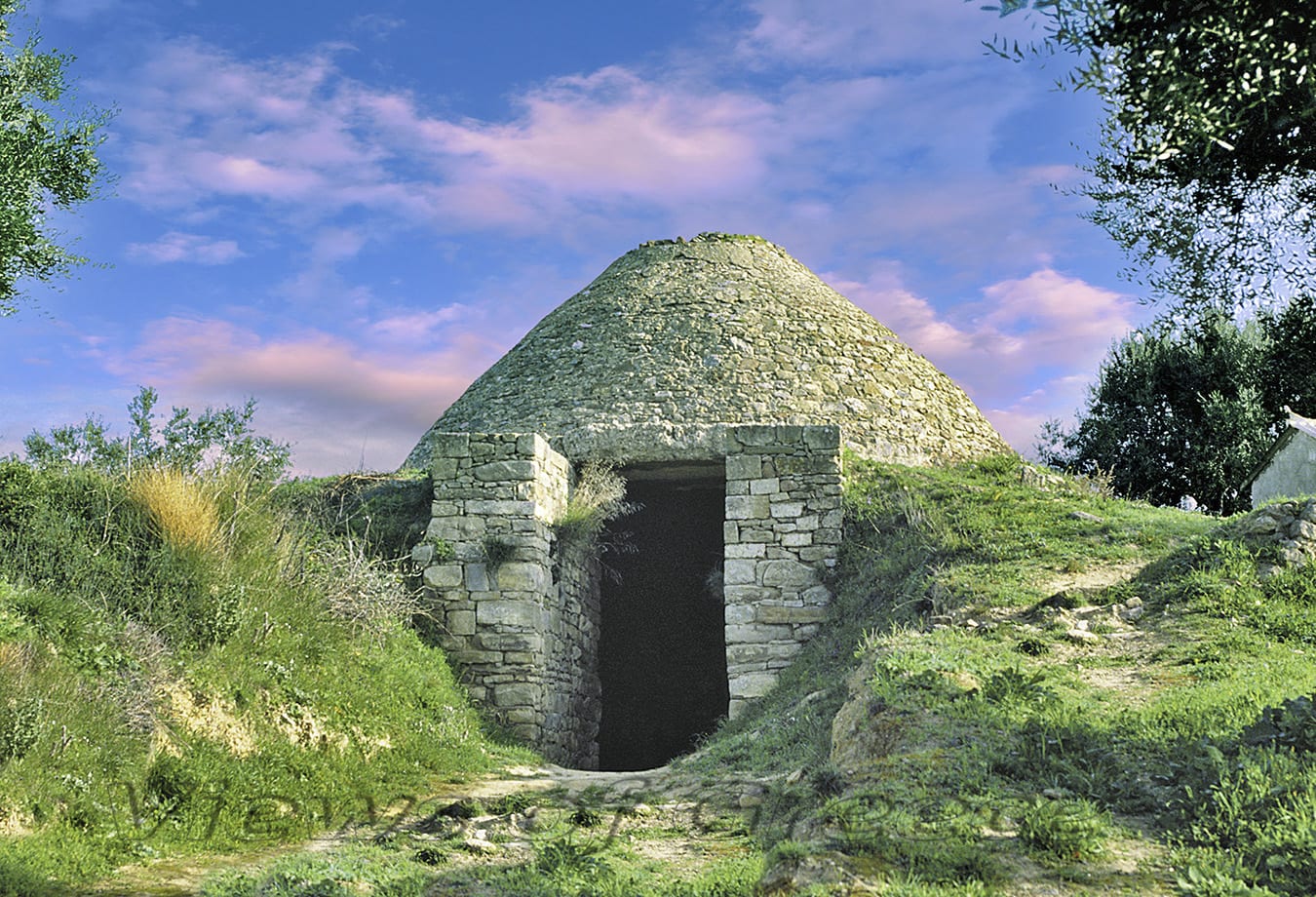
photo: Germaine Alexakis/ Views Of Greece
The palace of Nestor
The archaeological interest of the region is mainly focused around the Chora village (15 km north of Pylos, a place called “Eglianos”). Here you will have the opportunity to visit the palace of Nestor -ruins of three clusters of buildings are distinguished-, the vaulted graves and the significant Archaeological Museum (daily open: 08:00 a.m- 19:30 p.m). Moreover you can easily visit this area while driving towards Pylos from Athens, since it is found on the road axis that connects Patras with Pylos.
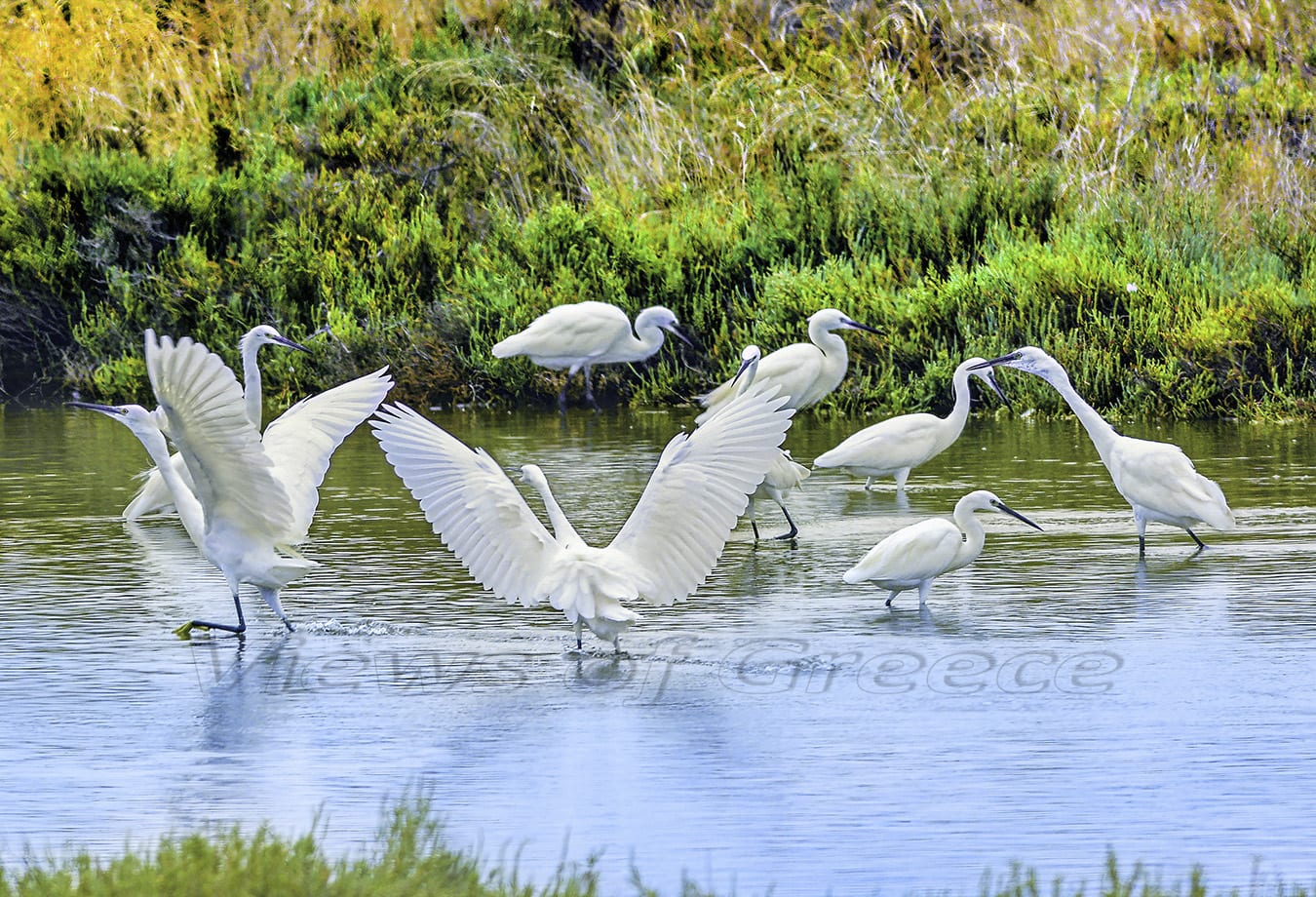
Photo: Theo Athanasiadis / Views Of Greece
TIPS
Best season
Pylos is in its best during summertime. However, spring and autumn are seasons full of colours, perfumes and a lot of bird species swarming the lagoons. During summer you will find all shops open because of tourism, but they will also be crowded especially in August.
Take with you
Insect repellent especially if you stay in the surroundings of Gialova’s lagoon.
Banking Services
In Pylos you can find banking branches as well as ATM.
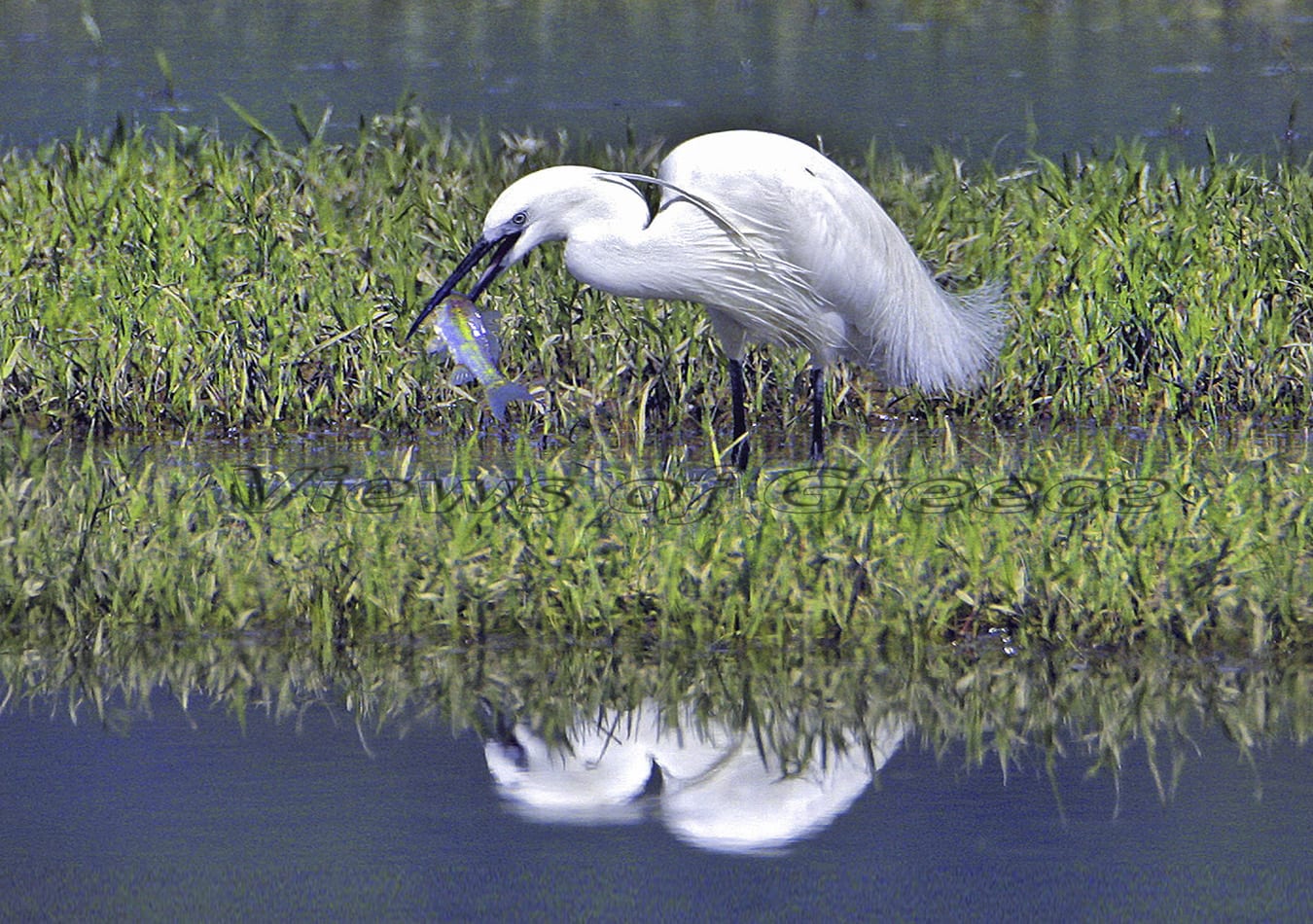
Photo: Theo Athanasiadis / Views Of Greece
Further information
Pylos municipality www.pylos.gr
Pylos port authority + 30.27230 -22225
Museum of Chora (palace of Nestor) + 30.27630-31357
Institute of Submarine Archaeological Researches + 30.27230 -22010
Archaeological Museum of Pylos + 30.27230 -22448
Methoni Castle + 30.27230 -22534
Pylos Hospital + 30. 27230-22315
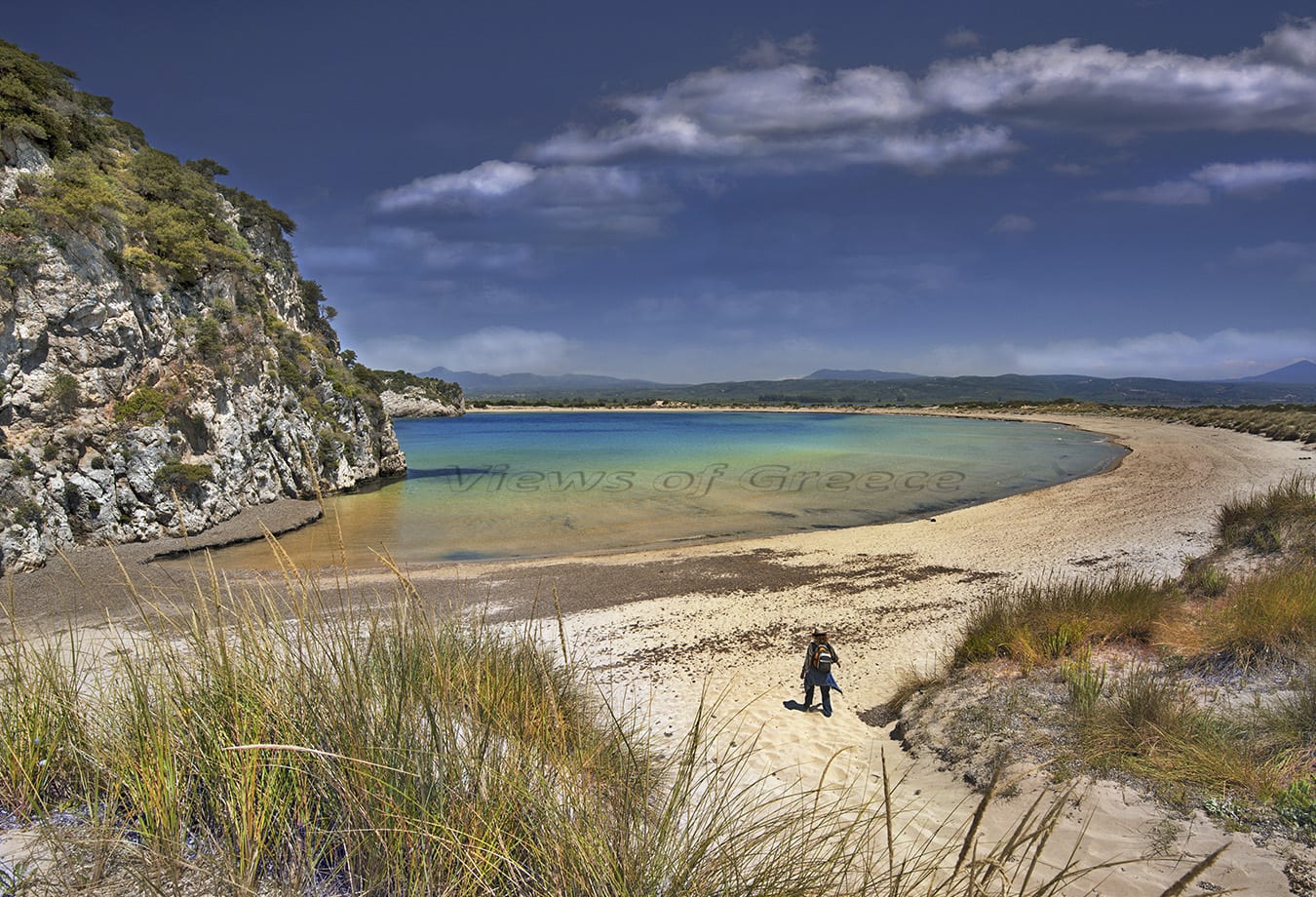
Photo: Theo Athanasiadis / Views Of Greece
The distances
“El. Venizelos” Airport – Isthmus of Corinth 118 km
Corinth – Tripolis 80 km
Tripolis – Kalamata 90 km
Kalamata – Pylos 51 km
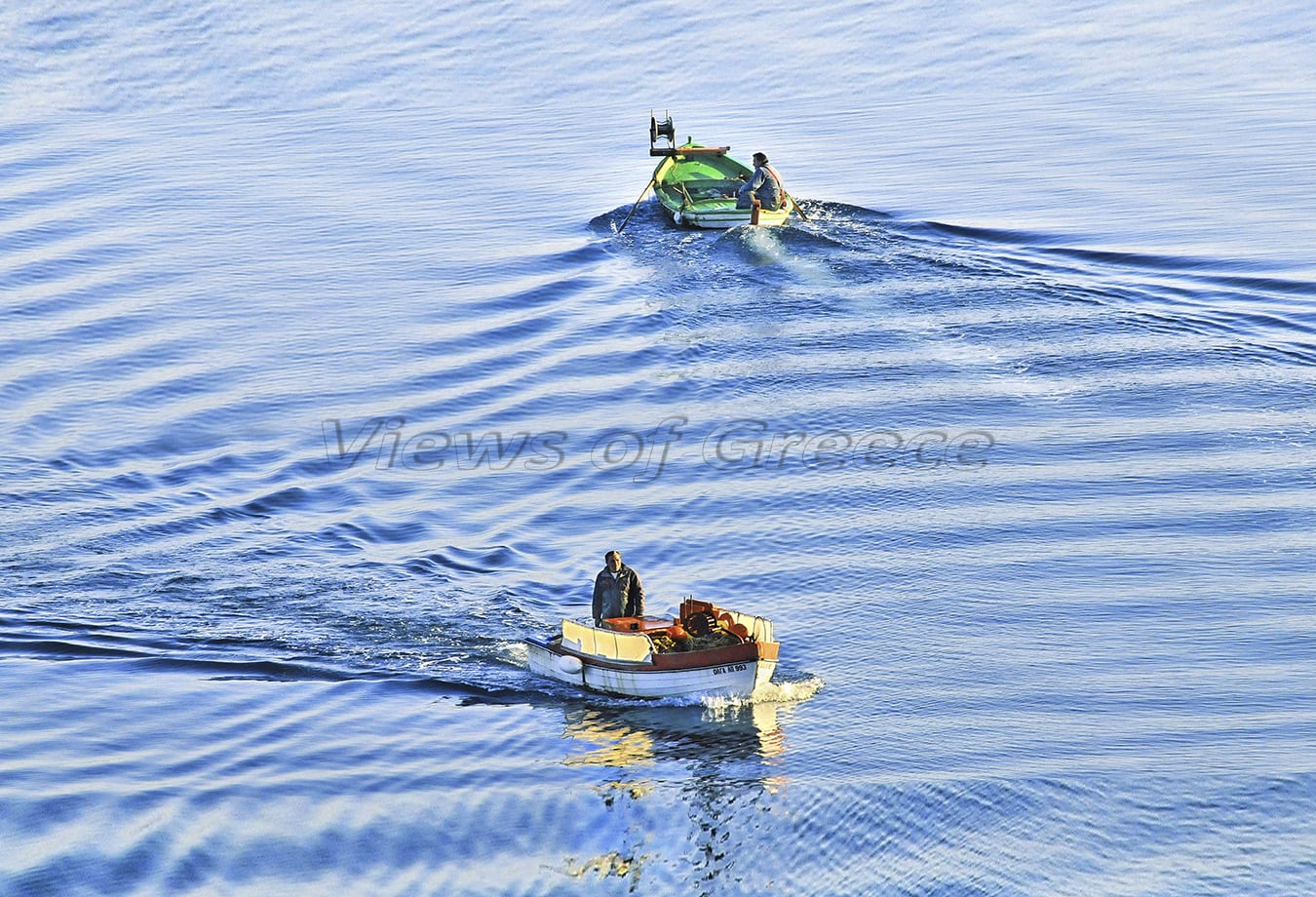
photo: Germaine Alexakis/ Views Of Greece
Distances of nearby cities
Pylos – Kalamata 51 km
Pylos – Ancient Olympia 125 km
Pylos – Koroni 40 km
Pylos – Tripolis 130 km
Copyright photo: Germaine Alexakis/ Views Of Greece
Copyright text: Theo Athanasiadis / Views Of Greece
“Views Of Greece” travel photojournalism – Discover the real Greece with the experts
According to the law:2121/1993 and the international treaty signed in Bern (which has been ratified with the law:100/1975) reproduction of this work is forbidden in any way, partially or on the whole, including texts or photographs alike without the written consent of the creator. Intellectual property is aquired without formalities and without the need for provision prohibiting its disputation.

